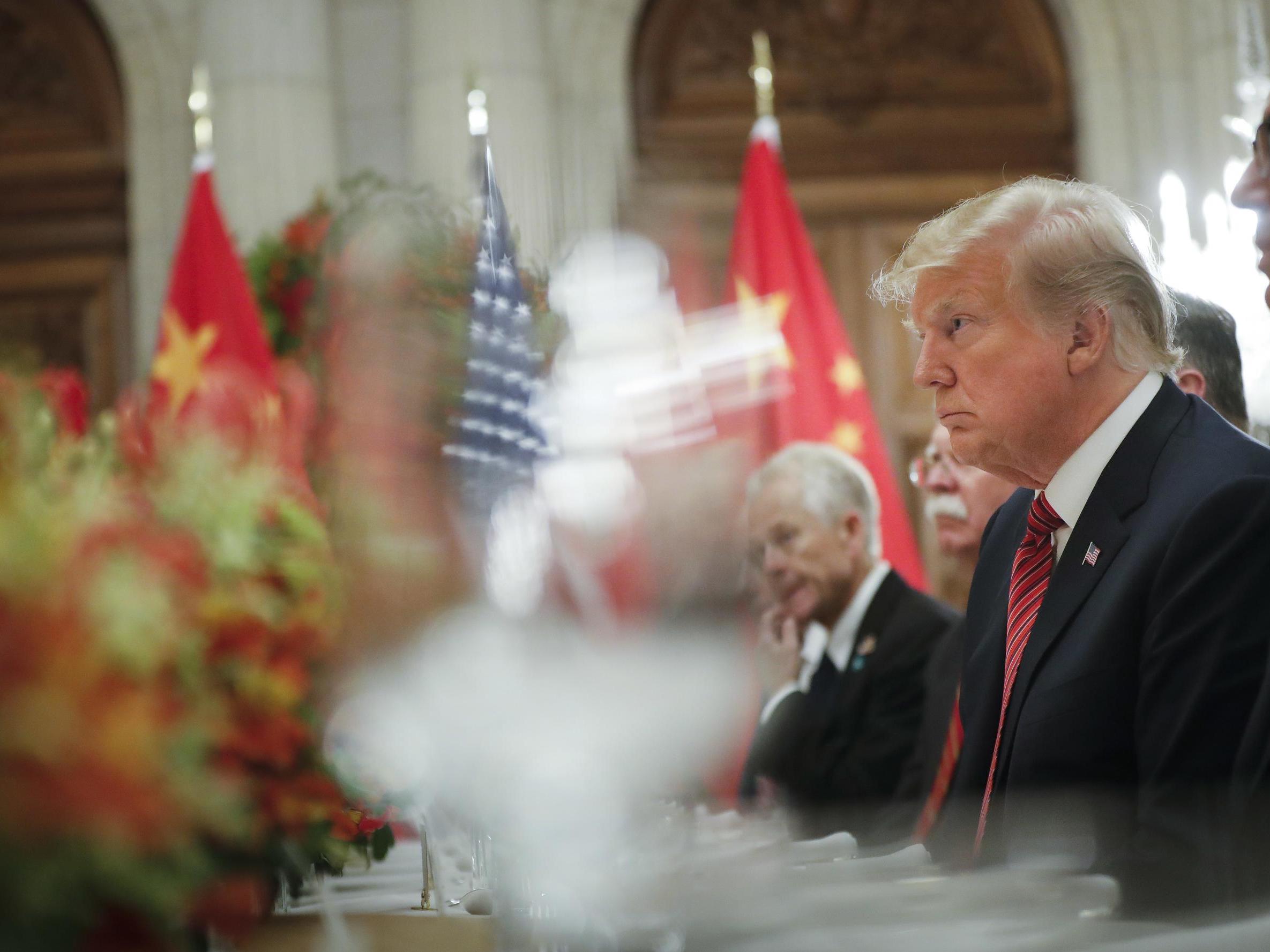US and China agree to pause trade war after G20 meeting between Trump and Xi Jinping
Mr Trump agreed to put plans to raise tariffs on $200bn-worth of Chinese goods on hold
Donald Trump and Xi Jinping have agreed to pause a long-running trade war between the US and China, in a deal that will provide relief to global markets.
The two world leaders met for a highly anticipated dinner at the G20 summit in Buenos Aires on Saturday evening, in an effort to resolve the dispute.
As part of the deal, Mr Trump agreed to pause plans to raise tariffs on $200bn-worth of Chinese goods. His administration had intended to increase tariffs from 10 to 25 per cent from 1 January 2019.
China, in response, will buy a “not yet agreed upon, but very substantial amount” of agricultural, energy and industrial goods from the US, according to the White House.
The truce was struck during a two-hour dinner between the global leaders and their advisers.
The concessions will buy time for the two sides to work out a deal covering the areas still in dispute.
New trade talks on technology transfer, intellectual property, non-tariff barriers, cyber theft and agriculture will now take place.
If no deal is reached within 90 days, both sides agreed the 10 per cent tariffs will be raised to 25 per cent, the White House said.
The trade dispute between the nations escalated in September, when Mr Trump imposed 10 per cent tariffs on $200bn-worth Chinese goods, only for China to retaliate with duties worth $110bn on US products.
On Sunday, China’s state-run media hailed the “important consensus” struck, but did not mention the 90-day deadline on further talks.

“It’s an incredible deal,” Mr Trump claimed, following the dinner.
“What I’ll be doing is holding back on tariffs. China will be opening up, China will be getting rid of tariffs. China will be buying massive amounts of products from us.”
As part of the deal, the White House appeared to change its stance on tying the trade talks to security concerns, such as China’s territorial ambitions.
In a long-desired concession pushed for by the US, Mr Xi’s government is willing to label fentanyl, the deadly synthetic drug at the heart of the US opioid crisis, a controlled substance.
“I think this [deal] is not a breakthrough – it’s more of avoiding a breakdown,” said Paul Haenle, director at the Carnegie-Tsinghua Center, in Beijing.
“This is not a worst-case outcome, but the hard work is ahead of them.”
Beijing has also agreed to reconsider a takeover of chipmaker NXP by US company Qualcomm.
It had previously blocked the move on antitrust concerns but it is unclear whether the transaction could be revived, even with China’s agreement.
The US and China’s trade imbalance, and Beijing’s ambition in the technology sector, lie at the heart of the trade war.
Washington accuses China of deploying predatory tactics in its tech drive, including stealing trade secrets and forcing American firms to hand over technology in exchange for access to the Chinese market.

Mr Trump said the death of former US president George HW Bush on Friday had put a “damper” on the “very important meeting”.
He had cancelled a press conference planned for Saturday, and said he was doing so out of respect for the Bush family.
Additional reporting by agencies
Join our commenting forum
Join thought-provoking conversations, follow other Independent readers and see their replies
Comments
Bookmark popover
Removed from bookmarks